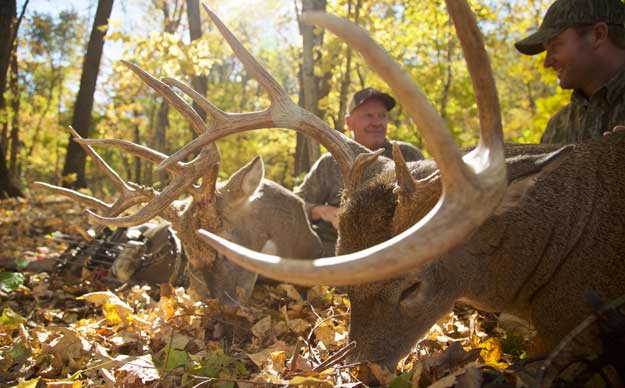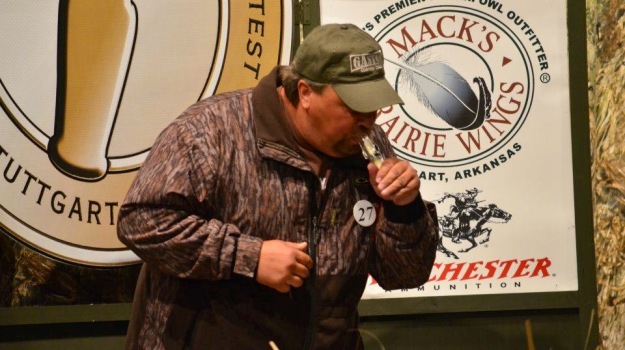
Most hunters want to see more and bigger bucks on their hunting property. Some believe it will take a long time and be too much work so they never even try. In fact, it really doesn’t take that much effort to see noticeable results and as far as time, remember it normally takes four years for a buck to produce a trophy caliber “crown.” With a small amount of planning and a little patience, these three strategies will show big results over a relatively small amount of time. Just like most things – “you get out of it, what you put into it.”
Selective harvest. How difficult is it to squeeze a trigger or free a bow string? Selective harvest can be the most important of these three tactics for several reasons. For one, obviously, dead deer don’t grow. A buck must be allowed to reach maturity to really show you his best set of antlers.
Because of how dispersal works in the whitetails’ world, you must also harvest does. A given piece of land will hold and sustain “X amount” of deer. Because of the territorial tendencies of whitetails, if you aren’t removing some does a large matriarchal society that just keeps getting bigger and bigger will develop. Then, when a buck disperses from his birth range and begins searching for where he will take root and spend the rest of his life, he may not be able to stay on your property because all of those spaces are filled by does. To see more bucks balancing the ratio is very important.
Because of the stress that an imbalanced buck to doe ratio causes, by balancing the ratio you will also see bigger bucks. Because of having to breed more does than each buck should along with other social stress factors, you should see a noticeable increase in antler size if you balance the sex ratio. By removing does you also cut down on the amount of mouths feeding on the remaining food. Harvesting the correct amount of does can be a win/win/win.
Plant protein-rich food plots. Most biologists agree, for a buck to show you their true potential they must have a consistent, year-round diet of 16% protein or better. Mother Nature doesn’t come close to providing that. On average, native vegetation will produce about 9% protein, that’s over 40% LESS than what they require. Blends like Deer Radish, Maximum, Winter Bulbs & Sugar Beets and numerous other BioLogic Blends will produce as much as 36% protein, over 100% MORE than the required 16%!
Bolster native habitat. To supplement the above food plots your herd will also need browse, mast and other native food supplies. Through fire, chainsaw, mowing, fertilizing and other fairly simple management techniques you can coax literally tons and tons of extra food out of your native plants. In addition to providing the extra food, fire, woods-work, mowing and other techniques used to create more native foods, will also help to create more living spaces (cover). Thick edge cover and plant diversity is what should be sought after.
Really, this can be as much work as you make it. Even if you only practice sound “trigger finger management,” you can churn out clear, easily seen results. But if you do put some time, effort and elbow grease into it, and execute all three responsibilities, you can be on your way to years of exciting, action-packed big buck hunting.
This tip is courtesy of the GameKeepers Field Notes, a weekly wildlife and land management email newsletter produced by the Mossy Oak GameKeepers.
A GameKeeper by definition is someone who truly loves AND lives the land, the critters and nature…not just during hunting season but all the time. A GameKeeper wants to be outdoors every day and work the dirt while living their personal “obsession”.
Find out more about what makes a GameKeeper by visiting our website.




























